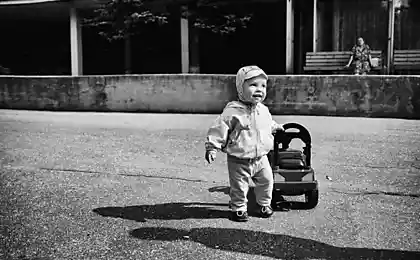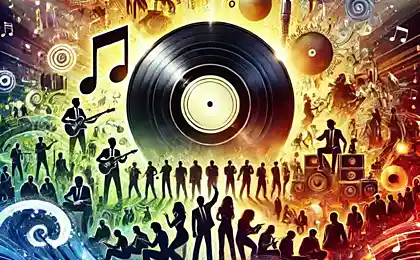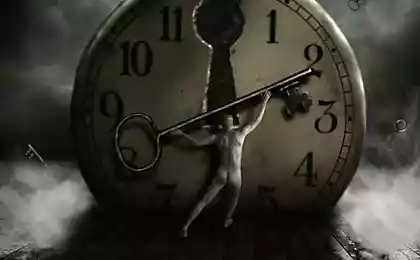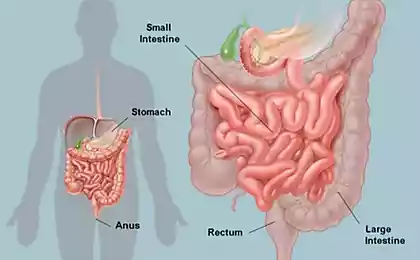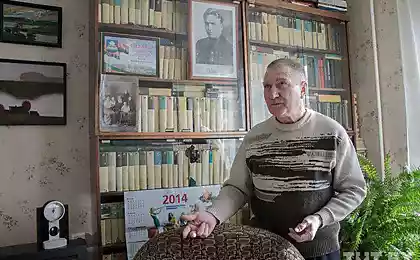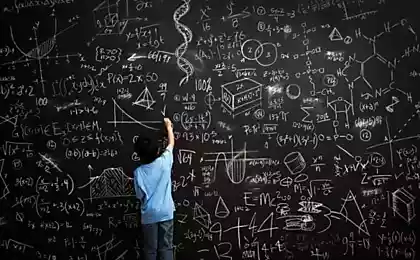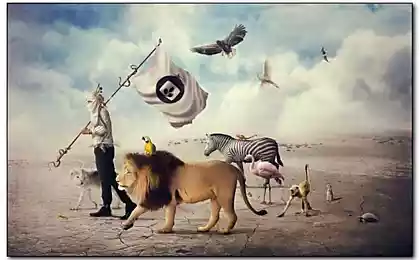644
Doctor of philosophy Valery Podoroga — is immortality a place for a person
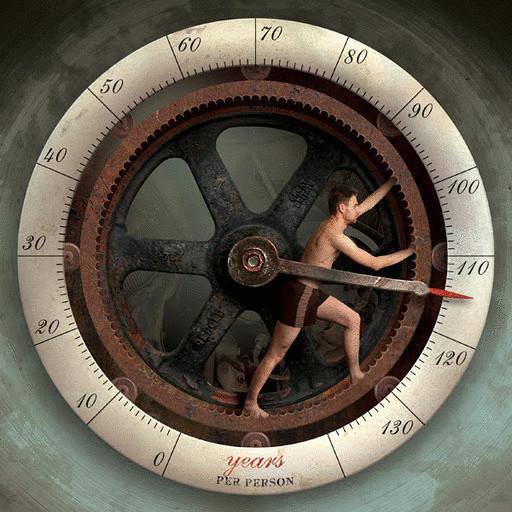
Valery Podoroga, DSC in philosophy, Professor, one of the leading scientists of the Institute of philosophy of RAS, head of the sector of analytical anthropology. Author of about 200 scientific papers and six books: "Metaphysics of the landscape" (1993), "Expression and meaning" (1995), "phenomenology of the body. Introduction to philosophical anthropology" (1995), "the Persistence of sight. M. Foucault and painting" (1999), "visual anthropology Workshop" (course of lectures in et al. 2000), "Auto-bio-graphy. Question about method. Notebook on analytical anthropology" (2001). Everything seemed to be just enough to create the necessary conditions and people can live forever. But is it possible? Why do people always aspired to immortality? As awareness of their own limbs in different ages have formed a particular picture of the world? "Moscow news" has talked with the philosopher Valery Podoroga about death as a factor of improvement of the species, the boredom of immortality, and its possible and impossible forms. — Let's start with a little history. As death and immortality conceptualized at different stages of the development of philosophy? — There is an extensive literature devoted to the rituals and cultural images of death/immortality. It is worth while to mention the works published in Russian in recent decades: "the Autumn of the middle Ages" (1988) Johan Heyzingi, "the Man in the face of death" (1992) Philippe Aries, "Life after life" (1996) Raymond A. Moody, "Death" (1999) by Vladimir Yankelevich, "Life and death in psychoanalysis" (2011) by Jean Laplanche. However, it is quite possible a cursory historical view, which will allow us to trace how value and power are endowed with death in a different era.
Ancient culture tied to her own understanding of death with the position of the sage, the philosopher-teacher, with the fearlessness of a Greek or Roman warrior in battle. The death of Socrates as a model of philosophical attitude to death. Ancient culture built the philosophical knowledge as a memento mori. Not just a reminder and request: if you consider yourself a philosopher, then be prepared to die. The stoic ideal of wisdom from Plato, Plutarch, Epictetus to Seneca, Cicero and Marcus Aurelius — exercise in death (what the ancients called ascetism).
After the fall of the Roman Empire and the coming of Christianity changed attitudes to life and death, created a new world doubled up, death is only a transition, a gateway to eternal life. We can say that within the boundaries of the ideology of Christianity, the death gets a positive value. Starting with the Apostle Paul, who proclaimed the denial of the flesh, and all human, not transformed by faith, death is insurmountable obstacle on the path to immortality. In the practice of Christian death rhymes with sin, God's punishment, guilt, lack of faith, etc.
Death is expelled, because it simply has no place. Since that time, science becomes the guarantor of the future of human immortality
In modern times weakened the ideological extremism of the Church, there is an explosion of scientific knowledge. Of course, between faith and science there is a conflict, which leads to a new interpretation of immortality/death. Since Descartes science radically separates what belongs to the mind and practice of the thoughts, and that physical life, the body and its passions. Descartes believes that the body is like a machine and is subject to the General laws of mechanics. And mind the strength to manage it. Mechanical code of the era — watch, i.e. the mechanics of the XVII–XVIII centuries determines "accuracy". The world of Descartes is a world of mechanical puppets and man its similarity. Death is expelled, because it simply has no place. Since that time, science becomes the guarantor of the future of human immortality.
Over the next two or three centuries, philosophical system support the cult of reason as a necessary condition of human immortality (Spinoza, Leibniz, Hegel, Schelling). For example, Leibniz believed that death is just a collapse of a certain order of beings (monads), and the birth of his deployment. Death in itself as a physical phenomenon no, it's our let and necessary, but an illusion.
Only since the mid-nineteenth century theme of life/death begins to actively rethink. This can be explained by a sharp transition of Western society to the so-called bourgeois individualism. Only the lone individual, referring to itself, can become aware of their "finality", its "death" and rebuild their view of the world where there is no more trust in Reason, nor in God. At this dramatic turn appear philosophy of life Serena Kierkegaard, Eduard von Hartmann and Arthur Schopenhauer, Friedrich Nietzsche. Human existence is now being researched from the point of view of death, not immortality. The twentieth century is in many respects a critical period: science specializiruetsya becomes independent of the dominant ideology, she resumes her search of immortality, but on other grounds and for other purposes.
Images of death and immortality in contemporary philosophy
Th.Huizinga. The Autumn Of The Middle Ages (1988)
F. Aries. The man in the face of death (1992)
R. A. Moody. Life after life (1996)
V. Yankelevich. Death (1999)
J. Laplant. Life and death in psychoanalysis (2011)
— This conversation about life and death, which are beginning thinkers, associated with the upheavals of the twentieth century or philosophical thought developed independently?
Philosophical thought always evolves independently of the shocks, but given their impact on human development and society. On the one hand, it is valuable precisely because of its "unnecessary" or "untimely", the philosopher often becomes something of a weirdo, talking about what nobody wants to hear. But philosophy retains the single "spiritual" image of their own time, which although are not always ready to take advantage of, but appreciated.
"WHAT does NOT CHANGE, IS DEATH" — Suppose a person lives for a very long time or indefinitely, while remaining healthy and full of energy. Respectively open in front of them almost unlimited opportunities to start life from scratch...
— Everything seemed to be just enough to create the necessary conditions and people can live forever. But is it possible? One answer at the beginning of the XX century gave us the great philosopher Nikolai Fedorov. In his book "the Philosophy of common cause" (1894) he introduced the idea of universal and real resurrection of the dead (fathers). Somewhat weird but fascinating concept: the world culture needs to move toward the cemeteries and other graves and to prepare for the fact that some vital and secret hour science will finally be the science of the future and will be able from smallest terrestrial and cosmic particles to recreate from the "dead" human of the dust of the living being to stop the pangs of death and birth, to approve eternal life (saying that Fedorov whether preached misogyny, or suffered from it). The new revival of the great world of the fathers is absolutely the Cartesian myth of the man-machine. Notice also that immortality was always like "eternal life", a long time it played in the life of the species, where a single individual get their "quality" and "name" (Pavel Florensky, Sergei Bulgakov, etc.)
But what is immortality? Let's say that on an individual, personal level you get the chance for immortality, "eternal life." But then whether to change your consciousness and the unity of personality? If not, unless you change and change, you will cease to exist in infinite time. If so, how to save yourself enough each time to be able to say to yourself: "...I live forever", to keep it great I? But that is something impossible. For eternity hides irreversible changes to the existence of my Y. in other words, psychosocial and physical preservation of human consciousness is impossible, it is constantly changing and needs to change. After all, what does not change, and is death...
— If we're not talking about immortality, but about a significant increase in life expectancy, which seeks to science, many questions arise. As, for example, in such a society there will be different generations?
— These eternal 20 or 30 years, maybe 250 years. Would it not be death to look within the stream of repetitions as the same picture of events? Remember the movie "Groundhog Day", by the way, is a good metaphor for today's conversation. It is meaningless to talk about generations, we're and choose, and create.
Under the eternal science understand the more primitive and simple — for example, dividing the immortal substance of the amoeba, or today in this quality of "eternal" appear viruses and dodgy genes. In nature nothing is eternal on the level of the body, holistic lifestyle. Only the invisible nature neglects the death and even "knows" her. Every change in levels of self-consciousness disrupts our identity. And our "forever" can become a deadly threat to nature. Isn't nature supposed to change?
My first book "the Phenomenology of body", released in 1995, was devoted to the study of images of the human body in contemporary culture. By studying and looking through numerous books, I was faced with the anatomical Atlas of prosthetics. While replaceable were more than 60 bodies, but today — who's counting? — perhaps hundreds, if not thousands of small and large dentures to cover the human body and prolong its existence. Does the future ever more ingenious prosthetics to transform us into cyborgs, machines with a human soul (not familiar if it is Cartesian machines)?
Paradoxically, but the human body is the only and final obstacle to immortality
From time to time there are renewed signs of the future "immortality": clones and cloning, gene structure, genes, stem cells and hybrid surgery, nanotechnology, and scanners. Improved all incredibly rich range of drugs (and other pharmaceuticals supplementing). More and more new machines and devices come in medicine, overcoming the last layers of opacity in the human body. The body is exhibited in three dimensions, increasing the accuracy of manipulation and diagnoses. The more we know about the human body, the less it depends on our consciousness and will, the less we are able to manage it. Paradoxically, but the human body is the only and final obstacle to immortality. After all, immortality is the preservation of our "self-identity", that is extremely expanded consciousness, to be freed from the flesh, destined to death and decay. So, perhaps, immortality must be attributed only to the task of preservation and conservation of consciousness, not of bodily form, not of the body? We must reject the mortal body for the sake of the future immortality of consciousness? Science fiction literature has enriched us with these images of consciousness without a body. But can there be a renewed consciousness without a body memory?
A SICKNESS unto DEATH — What means death in the life cycle of the individual? Does it determine the meaning of life or death — it is a cultural construct, an element in the world view of a society?
— What death? One answer: to improve the appearance. But if you this process improvement stop, then have to find something in return? And something that would help to continue the development of the human "qualities".
But what is this death, she is one or many? Typically, there are two deaths. One death is final, physiologically final and irreversible, death is big. As I said, appearance I, human identity, or "subjectivity", defined as say existential philosophers, understanding our own "limbs." The self arises as a reflection of the fact that we are fully aware; hence the concern and anxiety that accompany us through life.
And death is small, it is associated with various fears which we live and which are going through: the fears for the near and far, fears for the cause, fears of exam and many other different fears of everyday life in the world. Sometimes they become things, and we get sick.
There is such a disease... it used to be called melancholy, melancholy, melancholy, now called depression. Kierkegaard once very aptly called this mental pathology "disease and death."
From indefinite and permanent amount of small fears I distinguish four types. The first fear is when something you are frightened, but the appearance of the object that caused the fear, it removes, or rather, redirects our energies to escape, to aggression, depending on the proximity of the threat. The second type is anxiety, and not only the one that we all are (in varying degrees), but the one that takes obsessive forms. Typically, the object of anxiety reveals itself, and it seems that we fear or worry in vain, "for nothing", the alarm object (alarm), that's what she worried about. The third type is fabiny fear: we are afraid of something quite specific, and trying to avoid meeting him, a kind of limited pathology (for example, fear of mice, water, darkness, etc.). Finally, the last and most important fear is the first fear, or fear of the original, the Ur-Angst. It is usually associated with the fear of death attributed to human beings at birth, that's when the person gets a reflex of the great fear with which he remembers about the threat to their own existence in every moment of life.
There is a disease from which many suffer and which is barely tolerated. Kierkegaard once very aptly called this mental pathology "sickness unto death"
— In your opinion, has some value religious thinking, religious picture of the world for the modern man?
The only thing we have is faith in Mind. I believe that like me, most thinking people adheres to a-religious feelings, not the denial of religion and the understanding of the need and boundaries. Religious experience, if he is really experienced, is a deeply personal event. In many ways modern faith reminds me of a mix consisting of some form of ideology, habits and rules of "good" social etiquette. There are very radical forms of religious behavior, which is difficult to see the manifestation of true faith. Often faith publicly, but with no evidence except political ambitions, it seems particularly disgusting.
NOT/TRADITIONAL VALUES IN traditional societies there was a reverence to age, experience. Why do you think today is so developed cult of youth, at least in Western society? Despite the fact that in many countries society is ageing and almost not played...
— The cult of youth has always existed. Once reach a certain age, crossing the border for 50 years, you around voids, many of them: leave family, friends, teachers, colleagues. The world of depleted and degraded. The death of loved ones teaches a lot of man, not only the fact that he did die, it gives him a unique experience. How to cope with the death of a loved one? Many people can not stand this pain...
Against this background, the bygone life of the young generation is particularly advantageous. Relegated to the past and going generation look like the worlds singles. Youth all — energy and movement in front of the happy future achievements, success, happiness. When mortality is high enough, you always need youth, and she is presented as a wonderful gift of survival.
Of course, one cannot deny the "happy old age". In the West and in Japan the number of elderly people, keeping interest in life and activity in 80 years, clearly increased. Much higher standards of living helped to increase its duration. Of course, it is good, but still talk about the fullness of life is not necessary. You should probably talk about the special time of life that you want to include in our view of its stages. Naturally, the increasing number of older people creates the effect of General aging. However, I don't think that "happy layer" can stop the development of a society. But the fact that it forms a separate community, no doubt.
The authority of age plays a role, but only on the basis of competence, education and personal influence. In the past the transmission of traditional values is simply not even the family is no longer able to keep them.
source:111let.
Source: /users/1080


